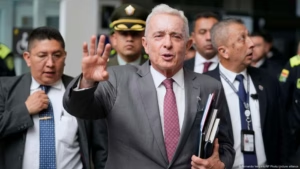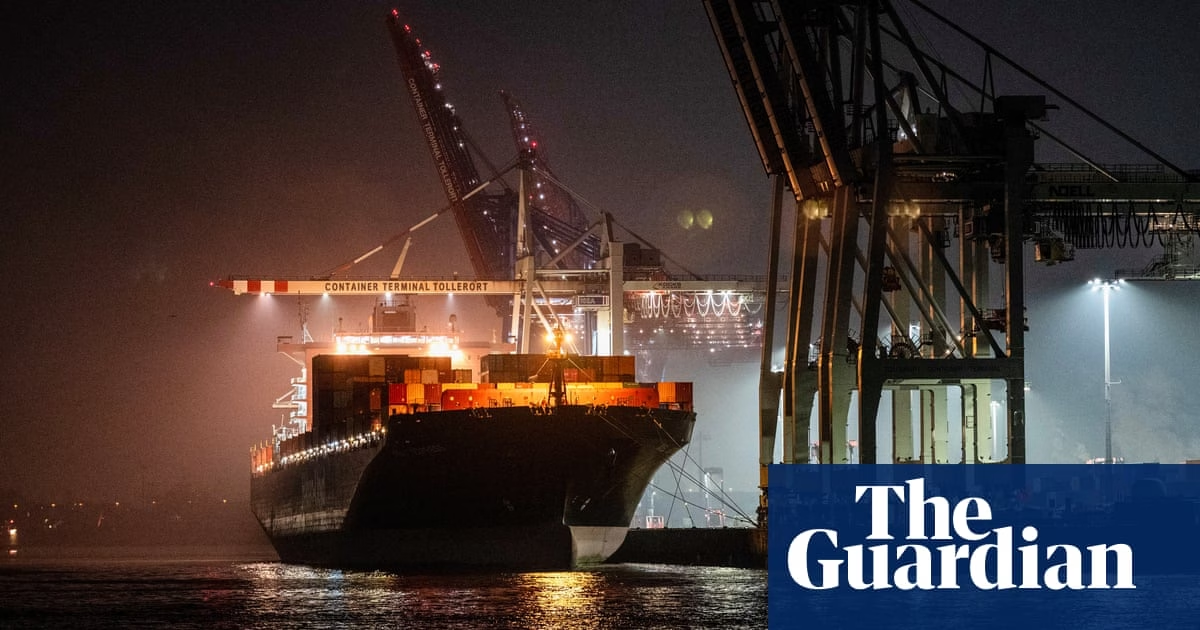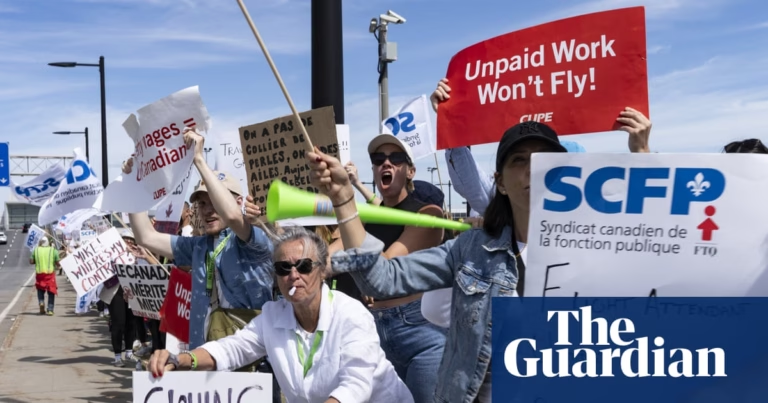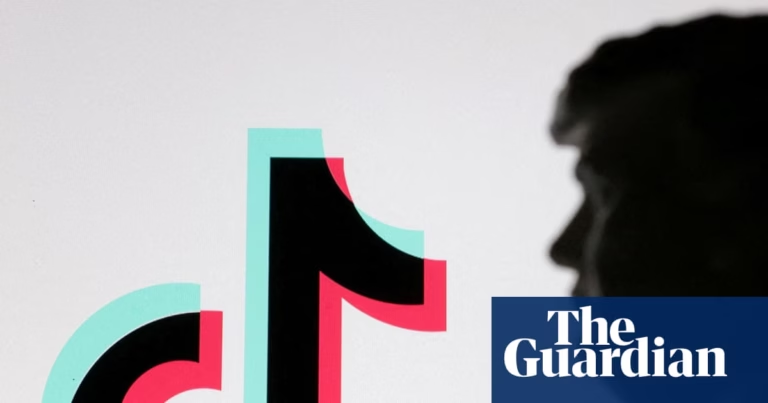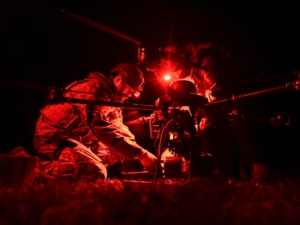In Hamburg’s spring sunshine, cargo ships almost half a mile long and carrying up to 200,000 tonnes dock along the Elbe River. These massive vessels are filled with shipping containers, each packed with a variety of goods, including raw materials, food, electronics, and even illicit substances like cocaine. The number of cocaine seizures in Hamburg has increased dramatically, rising by 750% between 2018 and 2023, marking Germany as a key European hub in the global drug trade. This influx of cocaine not only fuels addiction but also breeds corruption within a country that was previously regarded as one of the least corrupt in the world.
Daniel Brombacher, who heads the Europe bureau at the Global Initiative Against Transnational Organized Crime, reports a troubling trend of the port infrastructure being infiltrated, with police officers being bribed for information and a state attorney facing trial for allegedly leaking information to a cocaine trafficking network. A notable seizure in 2021 involved 16 tonnes of cocaine hidden in 1,700 tins of wall-putty. The lead prosecutor in that case is now under investigation for being on the payroll of the gang he was supposed to prosecute.
The situation is exacerbated by the skyrocketing profits from the cocaine trade in Europe, with a kilo of cocaine valued at around $2,000 in Colombia rising to an average of $40,000 once it reaches Europe. These profits aren’t just funding extravagant lifestyles but are also being reinvested in the next shipment, further entrenching organized crime networks across Western Europe.
Ports in Hamburg are among the most targeted by drug gangs, with insiders, or “hafeninnentäter,” which include dock and shipping workers, security guards, and truck drivers, moving drugs undetected. Hamburg has seen cases of port workers being jailed for their roles in the cocaine trade and has become so concerned about security threats that port security forces have requested submachine guns.
The societal impact of the cocaine trade is also evident in Hamburg’s streets, where the influx of cash from drugs can be seen in the increasing presence of luxury cars signaling the presence of cocaine money. Meanwhile, there have been several cases highlighting alleged corruption within the police force, including officers taking bribes and aiding drug trafficking networks.
Experts argue that the scale of corruption and organized crime in Germany remains underreported, with the country only recently beginning to acknowledge the full extent of the problem. The focus of investigators needs to expand beyond just targeting the perpetrators within criminal networks to include the facilitators, such as lawyers, local politicians, and financial advisers who enable and profit from organized crime.
The challenge for authorities is significant. Despite efforts targeting the cocaine trade, supply remains plentiful, and the cost has remained around the same as it was ten years ago. The shift in tactics by drug trafficking networks in response to increased security measures, such as moving to different European ports, underscores the complex and evolving nature of this issue. To combat the situation effectively, a comprehensive approach that includes a broader search for corruption and the infiltration of cocaine money across various sectors is essential.
Source: https://www.theguardian.com/world/2025/apr/30/cocaine-corruption-bribes-german-port-under-siege-europe-criminal-drug-gangs-hamburg
